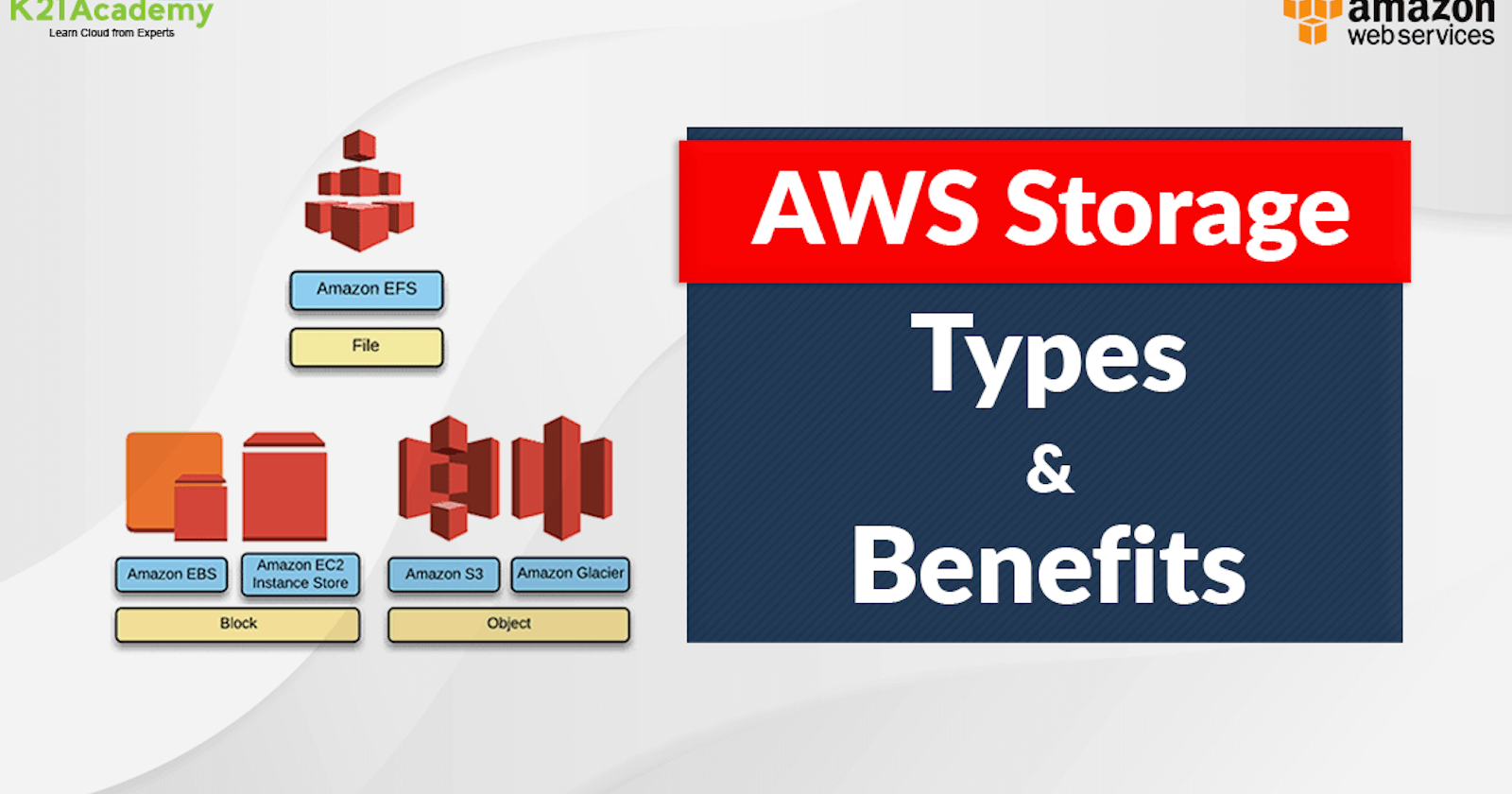Amazon Web Services (AWS) offers a range of storage services to cater to different use cases and requirements. Some of the most commonly used AWS storage services are:
Amazon S3 (Simple Storage Service): This is a highly scalable, durable, and secure object storage service. It is designed to store and retrieve any amount of data from anywhere on the web.
Some of the key features of Amazon S3 include:
Simple APIs: Amazon S3 offers a simple RESTful API and software development kits (SDKs) for popular programming languages.
Secure: Amazon S3 supports several encryption options, including server-side encryption, client-side encryption, and encryption in transit.
Scalable: Amazon S3 can automatically scale to support any amount of data, and offers a range of storage classes to suit different use cases.
Flexible: Amazon S3 can be used for a wide range of use cases, including backup and restore, archiving, big data analytics, content delivery, and much more
Amazon EBS (Elastic Block Store): This is a block-level storage service that provides persistent block-level storage volumes for use with Amazon EC2 instances.
Amazon EBS volumes are highly available and reliable storage volumes that can be used to store data for databases, file systems, and applications. They are designed to provide high performance and low latency and support a variety of use cases, from transactional databases to large-scale analytics.
EBS volumes are backed by Amazon's highly available and durable infrastructure and data stored on EBS volumes is automatically replicated within an Availability Zone (AZ) to protect against component failure. Additionally, users can take advantage of EBS snapshot functionality to create point-in-time backups of EBS volumes, which can be used for disaster recovery, data migration, and other purposes.
Amazon EFS (Elastic File System): Amazon Elastic File System (Amazon EFS) is a fully managed, highly scalable, and highly available file storage service offered by Amazon Web Services (AWS). It provides a simple, scalable, and highly available file system that can be used by multiple Amazon Elastic Compute Cloud (EC2) instances simultaneously.
Amazon EFS is designed to be highly available and highly durable, with data stored in multiple Availability Zones (AZs) within a region, ensuring that it
Amazon Glacier: This is a low-cost storage service designed for data archiving and long-term backup. It provides secure, durable, and scalable archival storage at a very low cost.
Amazon Glacier is optimized for infrequently accessed data that can be stored for months or even years. It is a low-cost storage option for data that is not frequently accessed but needs to be stored securely for a long time.
With Amazon Glacier, users can store data archives in the cloud and retrieve them as needed, with retrieval options ranging from a few minutes to several hours. Retrieving data from Amazon Glacier can take longer than retrieving data from other Amazon Web Services, but the cost is significantly lower.
Amazon FSx: This is a fully managed file storage service that provides access to shared file storage for Windows and Linux workloads.
Amazon FSx is a fully managed file storage service offered by Amazon Web Services (AWS) that makes it easy to set up and run scalable and highly available file systems in the cloud. It provides shared file storage accessible via the industry-standard Server Message Block (SMB) and Network File System (NFS) protocols, which allows users to easily move their existing applications to the cloud.
Amazon Storage Gateway: Amazon Storage Gateway is a hybrid storage service offered by Amazon Web Services (AWS) that connects an on-premises software appliance with cloud-based storage to provide seamless and secure integration between on-premises IT environments and AWS storage services.
The Storage Gateway software appliance can be installed on a customer's on-premises hardware or in an EC2 instance to provide hybrid cloud storage functionality. Once installed, Storage Gateway provides a range of storage features, including block storage, file storage, and volume backups.
Storage Gateway supports three types of storage:
File Gateway: This type of gateway allows users to access cloud-based file storage using NFS and SMB file-sharing protocols, while the actual data is stored in Amazon S3 or Amazon FSx for Windows File Server.
Volume Gateway: This type of gateway provides cloud-backed storage volumes that can be used as iSCSI devices by on-premises applications, and enables users to take advantage of cloud storage features such as snapshots, and data compression.
Tape Gateway: This type of gateway provides a virtual tape library that is backed up by Amazon S3 or Glacier. This is useful for users who need to store backup data for long periods and want to take advantage of the cost savings offered by Amazon S3 or Glacier.
These services can be used individually or in combination with each other to provide a complete storage solution for different types of applications and workloads.

